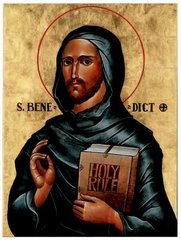This is a paper for liturgical education class.
When the pastor of my real parish was transferred, he asked me to help him in his new parish. It was a small church and it was quite far from the center of the diocese. It did not take me long to find that it had been neglected. And as my pastoral work in the liturgical celebrations there commenced, I saw that it really needed liturgical formation. Most of the ministers only know what was taught them in the formations from the diocese, the choirs did not have any decent repertoire of liturgical music and eveything in the celebration barely passed the minimum requirement (even the lights, only the light above the altar worked).
As the elected (I find it strange that I was elected without me knowing) Worship Coordinator, I was given the opportunity to improve the liturgical and devotional services in the parish. I was responsible for spearheading all planning, directing and evaluating what we do for worship. I took the time to attend meetings just to answer questions and clarify things. I found myself answering questions regarding small details of what we do in the Mass like bowing, genuflecting, etc and I realized that for many of the people here, it was the small things, the petty things, that were important. It was then that I realized that there was really a need to deepen their understanding of Christian prayer.
For the last two years, I had been busy not just with the liturgical services of the parish but also with giving formation seminars and talks. It is really amazing how the people in this parish are very open to these seminars and talks and they are very interested. I liken them to someone who hasn’t eaten for days who finds food and eats it voraciously. The people were very receptive and very willing to listen to someone half, or even a third of their age.
Recently, I have begun a worship publication for them that comes out monthly. I named it Ecclesia Orans because Fr. Dennis wont let me use Bukal (or Bukalette) and so that I can follow the tradition of the liturgical movement. It is where I try to explain things in a manner most can understand. It is mostly in Filipino. It is comforting to know that those who take copies do read them and keep them.
After reading the assigned articles, it was nice to know that I had been doing my part – helping make celebrations better and teaching litugy. I wish I could do more to make the liturgical celebrations in my new parish and in the bigger community of the Diocese better. But I need ordination for that. As of now, I am content with maximizing what I can do as a layperson, as a worship coordinator and as a member of the diocesan ministry for liturgical affairs.

Nessun commento:
Posta un commento